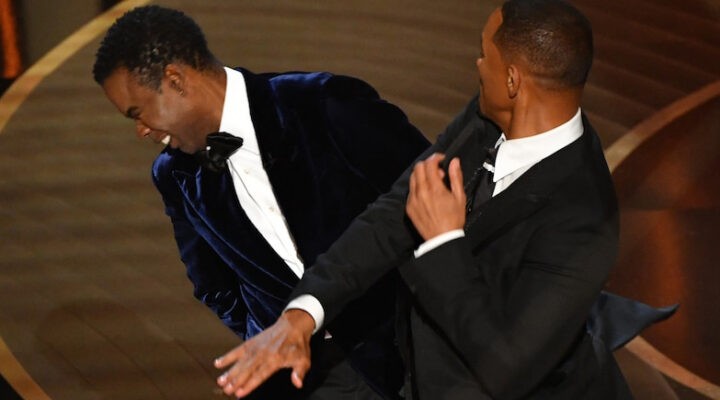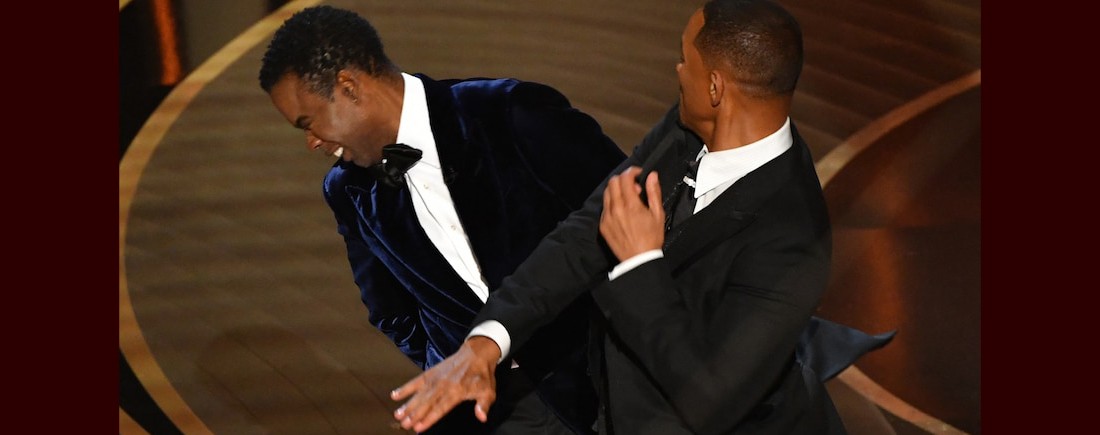Sunday night, there was a slap that should be heard around the world.
Before some of you tune out, let me issue some disclaimers. I am aware that some will feel obligated to feign disinterest at anything happening within the odd world we call Hollywood. You shouldn’t be so fast, though.
Here’s another disclaimer. We weren’t watching the Oscars show Sunday night at our house when the incident happened. No, we were being entertained by a cooking tournament over on the Food TV network. I’ve had to watch, listen and read about the tussle after it happened. By now, you may know the details: Comedian Chris Rock made a disparaging ad-libbed remark about actor Will Smith’s wife. Smith walked on stage and slapped Rock open-handedly and shouted profanities at him.

Charles Qualls
While I am answering the questions you may or may not be asking, both sides were wrong in their conduct. Nothing I say following this will condone what Smith did. We have clear norms, folkways and even laws that protect each of us from violence like that. He shouldn’t have slapped Chris Rock. No way.
Let me also acknowledge the danger of writing this soon after the incident. Any hot take stands the danger of not aging well. Facts may arise that make things look different. My point today should stand up to anything that surfaces.
All that being said, I hope we will allow ourselves to at least glance at the well-villainized Hollywood culture just long enough. Because it illustrates something during the Academy Awards that most of us are late paying attention to. That is, what we say can be just as violent as an open-handed slap to the face.
For any of us who bought into the myth of the children’s rhyme, let me disavow you of that illusion. “Sticks and stones may break my bones, but words will never hurt me” is not true. Simply not true at all.
Words, once released into history, cannot merely be taken back. We’ve all cracked wise what we thought was a joke, only later to realize why it wasn’t so funny. In this case, Chris Rock saw Jada Pinkett Smith’s cleanly shaven head and cracked a joke about being excited to see the “G.I. Jane 2” movie that must be soon to come. Sadly, Pinkett Smith suffers an autoimmune disease and reportedly lost her hair to Alopecia. This had been well publicized.
“Words, once released into history, cannot merely be taken back.”
As anyone who has ever endured the ongoing issues of autoimmune diseases will tell you, there is exactly nothing funny about it. A comedian’s job is to walk a thin line, taking real life and making it funny without crossing over into distaste. Good ones are smart enough, mature enough and have the judgment to constantly monitor where that line is.
Rock went too far. So did Smith. But joking about such a thing is out of bounds. Talking about someone’s spouse is also out of bounds. In fact, causing hurt with what we say can be just as painful and lasting as anything physical. Why we have such clear laws about physical assault but can’t arrive in a civilized culture at an understanding of how to better use our mouths is beyond me.
Now to those who love to say that someone “should have thicker skin than that,” let me point out that you are part of the problem. Pastors are famously given this advice by well-intentioned church members. Alas, me thinks that advice only makes sense to someone who wants the one party to feel better without having to confront the other party. Why should someone get away with inappropriate speech, while the victim enduring what they said is the acceptable prescription?
We’re not talking about a little humor here. We’re not talking about a little wise crack between friends that is edgy but OK. This was so inappropriate that it was obvious. What if instead of expecting people to just endure any insensitive thing, bystanders began to step in and point out when someone else gets jabbed verbally?
In our Rotary club, as within any of the thousands of Rotary clubs worldwide, we begin each meeting by reciting the Four Way Test of the Things We Think, Say and Do. That is, we pledge to filter especially what we say by tests of truth, fairness, benefit, as well as goodwill and friendship.
Why a civic organization can get it right, but other cultures can’t, is beyond me. In our communities, our families and yes, within our churches too, we’ve got to hold each other to a higher standard. When we stand by and don’t speak up about someone speaking inappropriately, we have essentially blessed what they said. This challenges me to be a better person.
Charles Qualls serves as pastor of Franklin Baptist Church in Franklin, Va.
Related articles:
Listen more, speak less, dispel anger with love | Opinion by Robert Sellers
Your words hold the power of life and death | Opinion by Amber Cantorna


